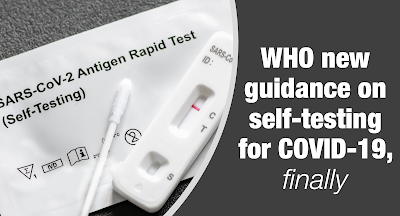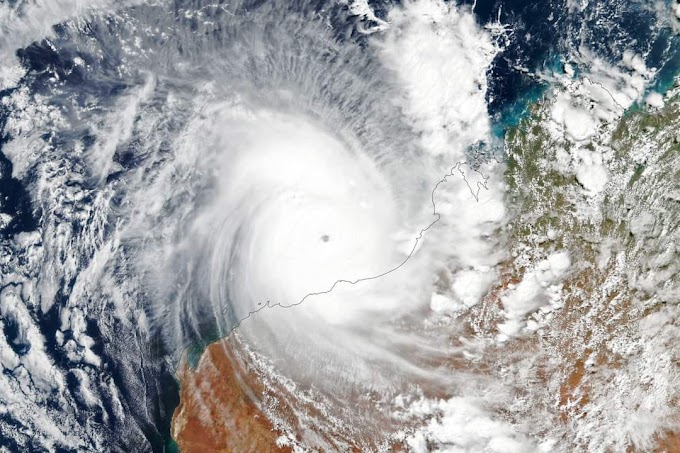Perils of not knowing our epidemic: Could reducing testing be counter-productive?
SHOBHA SHUKLA, BOBBY RAMAKANT - CNS
Think: Given the enormity with which the COVID-19 pandemic has impacted our lives for more than past two years, who will risk being caught in an Ostrich syndrome? But this is what is happening: declining COVID-19 testing in several countries is very alarming, along with sketchy genome sequencing capacity which seriously limits and jeopardizes the ability of health agencies to respond with effective and timely disease control measures.
11th March 2020 and 30th January 2020
Before we speak of COVID-19, let us acknowledge the importance of the eleventh of March 2022: Two years ago on 11 March 2020, the United Nations health agency (World Health Organization - WHO), had declared COVID-19 a pandemic. Almost six weeks prior to this important declaration, on 30 January 2020, the WHO had declared COVID-19 a public health emergency of international concern. Back then, as of 20 January 2020, 282 confirmed cases (only 4 of them were outside of China) had been reported and no deaths had occurred globally, outside of China. However, by the end of January 2020, 9826 cases had been confirmed globally, and only 106 of them were outside of China, which had also recorded 213 deaths. Today, within a span of more than two torturous years, over six million people have died worldwide due to COVID-19 and over 450 million have suffered the disease - and we all know these are underreported numbers.
Ignorance is not bliss: Knowing our pandemic is vital
Although reported cases and deaths are declining globally and several countries have lifted restrictions, the pandemic is far from over - it will not be over anywhere until it is over everywhere. Many countries in Asia and the Pacific are facing surges of cases and deaths.
"The virus continues to evolve, and we continue to face major obstacles in distributing vaccines, tests and treatments everywhere they are needed. WHO is concerned that several countries are drastically reducing testing. This inhibits our ability to see where the virus is, how it is spreading and how it is evolving. Testing remains a vital tool in our fight against the pandemic, as part of a comprehensive strategy" said Dr Tedros Adhanom Ghebreyesus, WHO Director General.
If we do not test for corona virus, and if we do not use other disease surveillance systems, such as genome sequencing, how will public health programmes respond in a timely and effective manner to curb any potential surge or spread? When new variants of corona virus had emerged in the past, it was only the strength disease surveillance systems (or lack of it) that defined how good or bad the response to the pandemic was. That is why making COVID-19 testing accessible to all is so vital. And self-testing cannot be ignored any longer.
WHO publishes new guidance on self-testing
The WHO has published new guidance on self-testing for COVID-19, recommending that self-tests should be offered in addition to professionally-administered testing services. This recommendation is based on evidence that shows people can reliably and accurately self-test, and that self-testing may reduce inequalities in access to testing.
"How countries use self-testing will need to be adapted according to national priorities, local epidemiology, and the availability of resources, with community input. We hope that our new guidance will also help to increase access to testing, which is too expensive for many low-income countries, where these tools could play an important role in expanding testing. WHO and its partners in the Access to COVID-19 Tools (ACT) Accelerator are urgently seeking further funding to ensure that all countries that need self-tests will be able to receive them as quickly as possible" added Dr Tedros.
In readiness for these self-testing guidelines, WHO has contacted manufacturers to encourage them to apply for WHO pre-qualification of self-tests. To date, WHO has granted emergency use listing to five rapid antigen tests for professional use.
It is important to mention that towards the end of January 2022, more than one hundred global organizations and experts had issued an open letter calling upon the WHO to authorize and recommend the use of COVID-19 rapid antigen tests for self-testing in low- and middle-income nations. People should be able to know their COVID-19 status in a simple, cheap and non discriminatory manner. Such an information will help them to take prompt action to break the chain of onward infection transmission, and rapid linkage to healthcare pathway will be another important outcome, had argued this open letter.
Around 11 billion COVID-19 vaccine doses have been administered globally in a world of over 7 billion people. But more than 3 billion people have yet to receive even their first dose. Vaccine inequity has cost unnecessary human suffering and untimely deaths. Now, inequity in accessing self-tests is a looming danger we cannot, and must not, have to deal with if we are to deliver on the tall promise of health for all where “no one is left behind”.
85% of the global population lives in low- and middle-income nations. Yet only 40% of COVID-19 tests were done in these places. The reported average per capita daily testing rate of high-income countries is nearly 10 times higher than that of middle-income countries and close to 100 times higher than that of low-income countries.
In Africa alone, 85% of COVID-19 infections are going undetected according to WHO. This inequity in access to the diagnostic tools that trigger life-saving individual and public health measures is part of the same ‘medical apartheid’ that has plagued the rollout of COVID-19 vaccines.
Self-testing is a necessary tool to enable rapid linkage to care and initiation of outpatient treatment to prevent hospitalisation and death, especially among those at high risk of disease progression.
Self-testing has the capacity of greatly expanding the number of people who know that they have contracted COVID-19 and are likely to be infectious to others. Access to self-tests promises significant benefits, particularly in resource-limited and geographically remote settings that lack sufficient RT-PCR testing capacity. Even in areas with RT-PCR testing know- how, self-testing can increase uptake among marginalised populations who are less able to and/ or likely to engage with the health system because of stigma, discrimination or unaffordability.
Over one hundred organizations that were signatories to this open letter, included: Amnesty International, AVAC, CNS (Citizen News Service), Drugs for Neglected Diseases initiative, Global Network of People Living with HIV, Global Network of Sex Work Projects, Health Global Access Project (Health GAP), Health Justice Initiative South Africa, International Community of Women Living with HIV/AIDS (ICW) Latina, International Treatment Preparedness Coalition, Oxfam, Partners in Health (PIH), Third World Network, Treatment Action Group, Treatment Advocacy and Literacy Campaign Zambia, among others.
Shobha Shukla, Bobby Ramakant – CNS (Citizen News Service)











